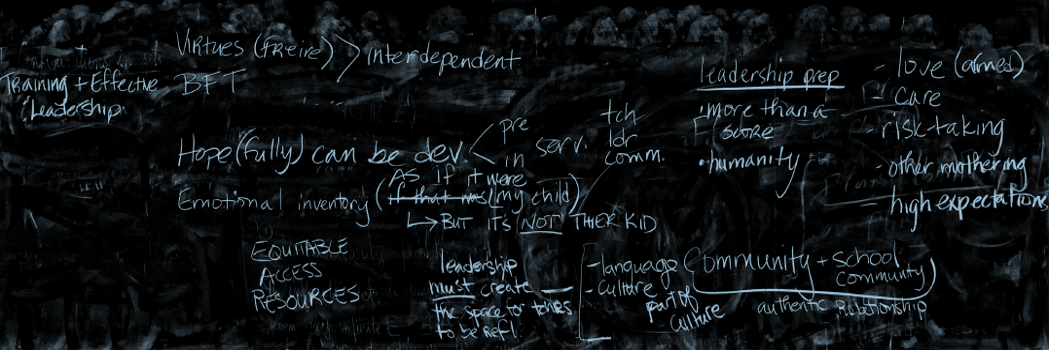There were so many gems in the Horsford (2021) reading. I agreed wholeheartedly with the assertion that there are “Allies” fighting the good cause but are still dictating the terms and conditions of the fight and what’s best for the people they are fighting for. It’s legit, the most frustrating part of pursuing a higher education degree in urban education. In the higher education space, the purpose is to be transformative but, the indoctrination into situating and historicizing education is based on mediocrity and taught from a linear white lens. The idea of an emancipatory education feels, sounds, and when envisioned, looks good. However, as Horsford (2021) points out, who will lead the charge? The honoring of voices from black people expressing their wants and needs is imperative but somehow, just never gets incorporated. And, when it is, it’s usually by way of a diversity initiative. The title alone “diversity initiative” unintentionally strips the significance away from being a national response, policy response, and/or societal response to being an issue for those and to address those who are considered critical mass. WHY IS THAT?
At times, it feels like the people who are marginalized are also charged with the burden of change. Horsford’s writing on integration is also something I’ve pondered every time data comes out that lends support to the positive impact that having black educators has on students. It must be said that the case for integrating spaces by way of desegregation was not strictly due to a desire to infiltrate majority White spaces. Black people were not fighting for White acceptance, they were fighting for fairness in resources, access, and education equity. At this point, “It’s above me now” and I charge every member of society to carry the burden of making education equitable not just the people that the lack of equity impacts.




I feel that “It’s above me now” big time. I almost closed my piece with: Integration? I’m over it.
I’m at a point where I’ve stopped even seeing the issue as making things more equitable. At this point, what I’m calling for is an ethos of noninterference enshrined in policy to ensure that all folks have the right to self-determination. I’m trying not to bring up that Anarchist Pedagogies book but really the more that I think about the issue of “a national education agenda” my brain locks up and then I start thinking about anarchist theories and I start to calm down.
I love that you’re saying this is about charging “every member of society to carry the burden.” To evoke this call for decentralized effort feels very much to me like a call for solidarity, one of the three anarchist pillars: liberty, equality, solidarity. Any way, I’ll stop talking about this book.
Fatima! First of all, thank you for placing this post. After reading your post, one of your questions that echoed Horsford stood out to me: Who will lead the charge? And I thought to myself, who better than YOU to lead the charge! Seriously, you’re doing the work in collaborative, supportive, intentional, and meaningful ways. Thank you for demanding that all members of society do their part.
This response makes me wonder about how all of us in this course can find ways to center and celebrate Balck and Brown joy in ways that are responsible to the communities we serve that make them know they are seen, valued, and loved, which includes creating and maintaining affinity groups spaces in the classroom and beyond. Your response and the Horsford works make me think of Jane and after-school programs as another possible vehicle for affinity spaces to buoy community engagement, support identity development, and attain academic achievement.